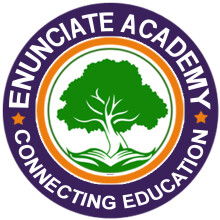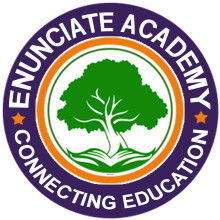Language is the foundation of communication, and mastering its basic skills is essential for effective expression. This chapter explores four fundamental aspects of language: vocabulary, correct spelling, singular and plural forms, and rhyming words. Each section provides insights and practical tips to enhance your language proficiency.
Vocabulary
Understanding Vocabulary
Vocabulary refers to the set of words known and used by a person. A rich vocabulary allows for more precise and varied expression, making communication more engaging and effective.
Tips for Expanding Vocabulary
- Read Regularly: Exposure to different genres, styles, and contexts introduces new words. Consider reading books, articles, and poetry.
- Use a Dictionary and Thesaurus: These tools help you understand meanings and find synonyms or antonyms, enriching your vocabulary.
- Engage in Conversations: Talking with others exposes you to new words and phrases. Don’t hesitate to ask for clarifications on unfamiliar terms.
- Practice Word Games: Crossword puzzles, word searches, and vocabulary quizzes can make learning new words enjoyable.
- Keep a Vocabulary Journal: Write down new words along with their definitions and example sentences. Review this journal regularly to reinforce your learning.
Correct Spelling / Spell Check
Importance of Correct Spelling
Correct spelling is crucial for clear communication. Misspelled words can lead to misunderstandings and may undermine the writer's credibility.
Strategies for Improving Spelling
- Learn Common Rules: Familiarize yourself with basic spelling rules, such as "i before e except after c" and the rules for adding suffixes.
- Practice Regularly: Write frequently and pay attention to your spelling. The more you write, the more familiar you become with the correct forms.
- Use Technology: Spell check tools in word processors and online platforms can help identify and correct spelling errors. However, always review suggestions critically, as they may not always be accurate.
- Break Words Down: Divide longer words into syllables to make them easier to spell. For example, "unbelievable" can be broken down into "un-be-liev-able."
- Learn from Mistakes: Keep track of words you frequently misspell and practice them until you can spell them correctly.
Singular/Plural
Understanding Singular and Plural Forms
Singular nouns refer to one item, while plural nouns refer to more than one. Mastering the rules for forming plurals is essential for grammatical accuracy.
Rules for Forming Plurals
- Regular Plurals: Most nouns simply add "s" to form the plural (e.g., cat → cats, book → books).
- Nouns Ending in "s," "x," "z," "ch," or "sh": These typically add "es" (e.g., bus → buses, box → boxes).
- Nouns Ending in a Consonant + "y": Change the "y" to "i" and add "es" (e.g., baby → babies).
- Nouns Ending in "f" or "fe": Often change to "ves" (e.g., wolf → wolves, knife → knives).
- Irregular Plurals: Some nouns have unique plural forms that must be memorized (e.g., child → children, mouse → mice).
Rhyming Words
The Importance of Rhyming Words
Rhyming words are words that have similar ending sounds. They are essential in poetry, songwriting, and playful language, enhancing creativity and memorability.
How to Identify Rhyming Words
- Listen for Sound Patterns: Focus on the ending sounds of words. For example, "cat" and "hat" rhyme because they share the same ending sound.
- Use Rhyming Dictionaries: These specialized dictionaries list words that rhyme with a given word, making it easier to find suitable pairs.
- Engage in Rhyme Games: Participate in games that challenge you to come up with rhyming words, such as “I spy” or “Rhyme Time.”
- Write Poetry or Songs: Experiment with creating your own rhymes. This practice not only improves your understanding of rhyming but also enhances your overall language skills.
Examples of Rhyming Words
- Cat: Hat, Bat, Mat
- Sun: Run, Fun, Gun
- Tree: Free, Bee, See
Mastering basic language skills such as vocabulary, correct spelling, singular and plural forms, and rhyming words lays a strong foundation for effective communication. By practicing these skills regularly, you can enhance your language abilities, making your writing and speaking more impactful and engaging. Embrace the journey of learning, and enjoy the richness that language brings to your life!
1. What does the word "benevolent" mean?
A) Angry
B) Kind and generous
C) Lazy
D) Unfriendly
Answer: B) Kind and generous
2. Which of the following words is a synonym for "happy"?
A) Sad
B) Joyful
C) Angry
D) Tired
Answer: B) Joyful
3. What is the meaning of the word "diligent"?
A) Careless
B) Hardworking
C) Noisy
D) Quick
Answer: B) Hardworking
4. Which word means the opposite of "difficult"?
A) Easy
B) Complicated
C) Hard
D) Challenging
Answer: A) Easy
5. What does the word "curious" mean?
A) Bored
B) Eager to learn or know
C) Tired
D) Confused
Answer: B) Eager to learn or know Feel free to use these questions to enhance vocabulary skills in a fun and engaging way!
6. Which of the following words is spelled correctly?
A) Definately
B) Definitely
C) Definatelye
D) Definatelyy
Answer: B) Definitely
7. Which word is spelled incorrectly?
A) Beautiful
B) Beautifull
C) Beautyful
D) Beutiful
Answer: A) Beautifull
8. Select the correctly spelled word:
A) Accomodate
B) Accommodate
C) Acommodate
D) Accomadate
Answer: B) Accommodate
9. Which of the following words is spelled correctly?
A) Occassion
B) Occasion
C) Occassionn
D) Occasssion
Answer: B) Occasion
10. Identify the word with the correct spelling:
A) Recommend
B) Reccomend
C) Recommed
D) Recommedn
Answer: A) Recommend These questions will help students practice their spelling and improve their language skills in a fun and engaging way!
11. What is the plural form of "mouse"?
A) Mouses
B) Mices
C) Mice
D) Mouses
Answer: C) Mice
12. Which of the following is the correct plural form of "child"?
A) Childs
B) Childrens
C) Children
D) Childres
Answer: C) Children
13. What is the plural form of "leaf"?
A) Leafs
B) Leaves
C) Leafes
D) Leavs
Answer: B) Leaves
14. Which of these words is already in the plural form?
A) Tooth
B) Foot
C) Teeth
D) Feet
Answer: C) Teeth
15. What is the plural form of "knife"?
A) Knifes
B) Knives
C) Knifes
D) Knives
Answer: B) Knives These questions will help students understand the concept of singular and plural nouns and practice forming plurals correctly.
16. Which word rhymes with Lamp
A) Camp
B) Sock
C) Tick
D) Rock
Correct Answer: A. Camp
Explanation: The correct answer is "camp" because it is the only word that is related to the word "lamp" by changing the first letter. The other words do not have any clear connection to "lamp" or do not follow a letter change pattern.
17. Which word rhymes with Proof
A) Care
B) Bear
C) Roof
D) Top
Correct Answer: C. Roof
Explanation: The correct answer is "roof" because it is the only word in the given list that is related to the concept of a building's top covering. "Care" and "bear" are unrelated, and "top" is a more general term that does not specifically refer to a roof.
18. Which word rhymes with Cold
A) Bowl
B) Hold
C) Crawl
D) Roll
Correct Answer: B. Hold
Explanation: All the words listed have the same ending sound "-old". However, only the word "hold" matches the given pattern of having the same ending sound and having a single syllable. The other words have either a different number of syllables or a different ending sound, making "hold" the correct answer.
19. Which word rhymes with Tool
A) Fox
B) House
C) Fool
D) Food
Correct Answer: C. Fool
Explanation: The correct answer is "fool" because it is the only word in the given list that is related to the word "tool". The other words, "fox", "house", and "food", do not have any direct connection to the word "tool".
20. Which word rhymes with Pole
A) Hole
B) Cold
C) Hot
D) Spot
Correct Answer: A. Hole
Explanation: The correct answer is "hole" because it is the only word in the given list that is related to the other words. "Pole" could refer to a geographic location or a long, slender object; "cold" and "hot" are opposite temperature conditions; and "spot" can refer to a particular place or a mark. However, "hole" stands out as it can be associated with an opening or an empty space, which is different from the other words.

